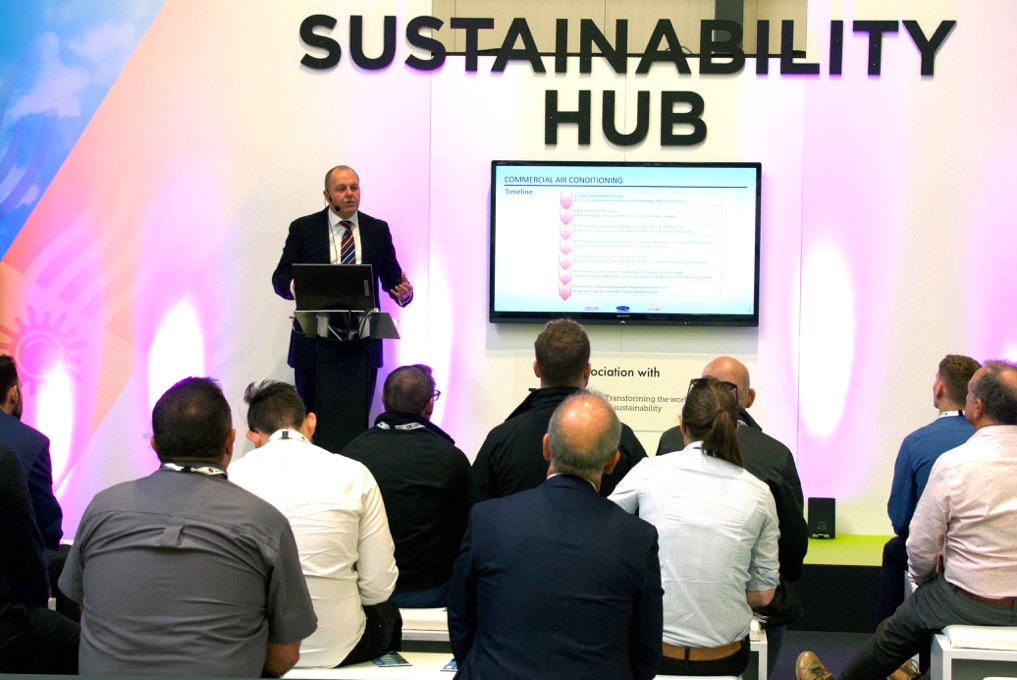 TCUK addresses critical question facing the industry
TCUK addresses critical question facing the industry
Toshiba Carrier UK was invited to participate in UK Construction Week, which focussed on key issues affecting the future of the construction and building services industry.
David Dunn, managing director sales, gave a keynote presentation entitled “VRF or Chillers for Air Conditioning – What Does the Future Hold?”, in which he highlighted the key legislative and environmental forces shaping the future development of technology.
Mr Dunn said: “It is a critical question facing the industry and specifiers right now, and I believe TCUK has a unique perspective as we are at the forefront of both chiller and VRF systems via our Carrier and Toshiba sister companies respectively. Few companies straddle this fundamental technology divide and are fully conversant with both approaches.”
He added: “We believe the dominant solution won’t become clear until the current uncertainties over refrigerant options have been resolved. However, we are evaluating a number of alternatives and customers can rest assured that with our leadership in both areas of technology, we will have a proven, best-in-class solution that will exceed efficiency and environmental requirements.”
 Important changes are underway in the air conditioning sector as a result of implementation of the latest revisions to the F-Gas Regulations. In particular, this has implications for the availability of HFC refrigerant, a mainstay for many air conditioning applications, which is now subject to a progressive phase-down under a European Union quota system as a result of its high Global Warming Potential (GWP).
Important changes are underway in the air conditioning sector as a result of implementation of the latest revisions to the F-Gas Regulations. In particular, this has implications for the availability of HFC refrigerant, a mainstay for many air conditioning applications, which is now subject to a progressive phase-down under a European Union quota system as a result of its high Global Warming Potential (GWP).
Dunn reminded delegates that the transition from chillers to VRF systems in the 80s and 90s marked a watershed in terms of technology; that settled picture over the past three decades was now being challenged, he said, as chillers once again came to the fore and were looking to reclaim ground taken by VRF technology.
However, he cautioned that the outcome was by no means a forgone conclusion, as the efficiency and flexibility benefits of VRF remained attractive and compelling. There were benefits for both technologies, he concluded, with chillers making big advances in technology, efficiency and potentially faster implementation of low GWP refrigerants. “On the other hand, VRF has transitioned to new forms in the past, and I have no doubt that the next generation of VRF systems will bring further important advances in DX refrigerant technology.”
In the light of these developments, specifiers, FM companies and building operators needed to keep abreast of changes under way in order to ensure buildings for which they were responsible could continue to operate cost-effectively in the future, and that capital investment in new and replacement plant was carefully planned.
“Given the uncertainties, people are understandably nervous. However, our message to customers is – we are confident that we have all the bases covered, in both VRF, chiller and rooftop categories. Between them, TCUK’s leading brands will continue to deliver innovative, efficient and reliable products that offer outstanding performance for building owners, occupants and the environment.”

